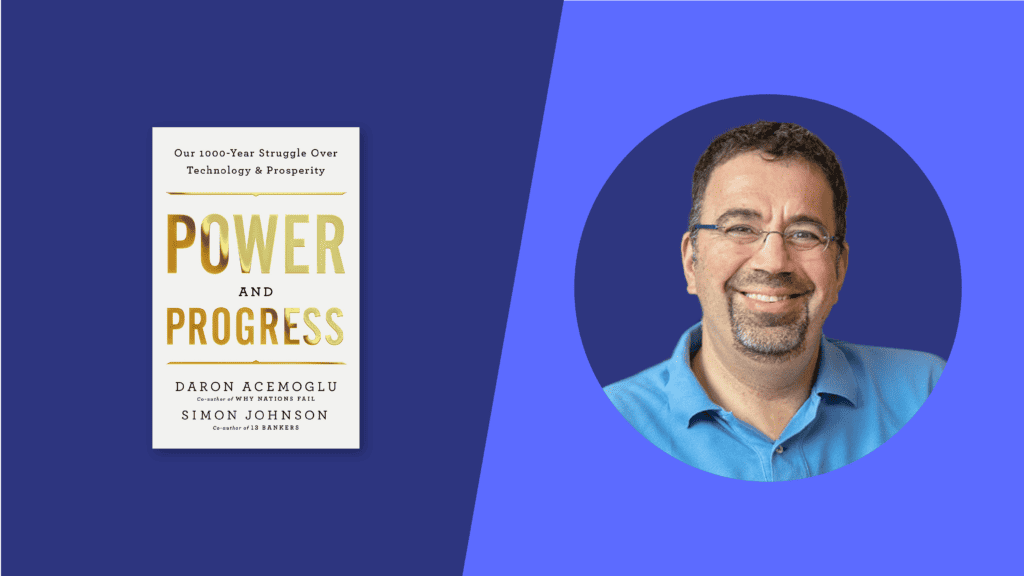Power and Progress is the blueprint we need for the challenges ahead.”
— Shoshana Zuboff, bestselling author of The Age of Surveillance Capitalism
In an age of ChatGPT and increasing automation, we must choose to take control of these technologies and build a more just and democratic world, says Daron Acemoglu. He’s the bestselling co-author of Why Nations Fail—the blockbuster book on why strong institutions are the often-overlooked key to strong democracies—and his new book Power and Progress (out now!) is a hopeful look at the future of technology and a roadmap for the work ahead.
Daron argues that although technology has historically been used to serve an elite few, it doesn’t have to be this way. We can use new tools like AI to bolster our economy, build up our democracy, and drive social progress for a more equitable world. “This is not a lament about the future being bad,” he says. “What makes this interesting is that the direction of technology is malleable—so we can redirect it.”
This bold reinterpretation of history and economics is already drawing accolades across the media, from WIRED to Financial Times. Along with co-author Simon Johnson, Daron gives us a sweeping overview of the last 1000 years of technological progress, drawing lessons from history to show what we need to do today to “ensure the rising tide of innovation lifts all boats” (Publishers Weekly).
















